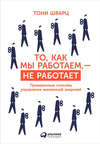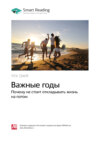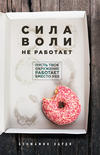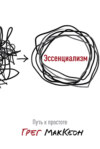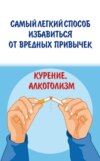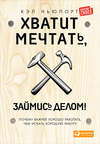Цитаты из книги «Важные годы. Почему не стоит откладывать жизнь на потом», страница 4

“We think that by avoiding decisions now, we keep all of our options open for later—but not making choices is a choice all the same.”“The twenties are an up-in-the-air and turbulent time, but if we can figure out how to navigate, even a little bit at a time, we can get further, faster, than at any other stage in life. It is a pivotal time when the things we do—and the things we don’t do—will have an enormous effect across years and even generations to come.”“Identity capital is our collection of personal assets. It is the repertoire of individual resources that we assemble over time. These are the investments we make in ourselves, the things we do well enough, or long enough, that they become a part of who we are. Some identity capital goes on a résumé, such as degrees, jobs, test scores, and clubs. Other identity capital is more personal, such as how we speak, where we are from, how we solve problems, how we look. Identity capital is how we build ourselves—bit by bit, over time. Most important, identity capital is what we bring to the adult marketplace. It is the currency we use to metaphorically purchase jobs and relationships and other things we want.”“More often, identities and careers are made not out of college majors and GPAs but out of a couple of door-opening pieces of identity capital—and I was concerned that Helen wasn’t earning any.”“The one thing I have learned is that you can’t think your way through life. The only way to figure out what to do is to do— something "“I get it, but that doesn’t change the fact that, as we look for jobs or relationships or opportunities of any kind, it is the people we know the least well who will be the most transformative. New things almost always come from outside your inner circle"“Make yourself interesting. Make yourself relevant. Do your homework so you know precisely what you want or need. Then, respectfully, ask for it. Some weak ties will say no. More than you think will say yes. The fastest route to something new is one phone call, one e-mail, one box of books, one favor, one thirtieth birthday party.”“There is a certain terror that goes along with saying “My life is up to me.” It is scary to realize there’s no magic, you can’t just wait around, no one can really rescue you, and you have to do something. Not knowing what you want to do with your life—or not at least having some ideas about what to do next—is a defense against that terror. It is a resistance to admitting that the possibilities are not endless. It is a way of pretending that now doesn’t matter. Being confused about choices is nothing more than hoping that maybe there is a way to get through life without taking charge"“What might you be able to do well enough to support the life you want? And what might you enjoy enough that you won’t mind working at it in some form or another for years to come?”“Part of realizing our potential is recognizing how our particular gifts and limitations fit with the world around us. We realize where our authentic potential lies.Working toward our potential becomes what developmental theorist Karen Horney called a search for glory when, somehow, we learn more about what is ideal than about what is real. Maybe we feel the cultural press to be an engineer before we find out what exactly that entails. Or our parents tell us more about what we should be like than what we are like. Or Facebook suggests that our twentysomething lives ought to look a lot better than they do. Scrambling after ideals, we become alienated from what is true about ourselves and the world.”“Shoulds can masquerade as high standards or lofty goals, but they are not the same. Goals direct us from the inside, but shoulds are paralyzing judgments from the outside. Goals feel like authentic dreams while shoulds feel like oppressive obligations"“Distinctiveness is a fundamental part of identity. We develop a clearer sense of ourselves by firming up the boundaries between ourselves and others. I am who I am because of how I am different from those around me. There is a point to my life because it cannot be carried out in exactly the same way by any other person. Differentness is part of what makes us who we are. It gives our lives meaning”
“An identity or a career cannot be built around what you don’t want. We have to shift from a negative identity, or a sense of what I’m not, to a positive one, or a sense of what I am. This takes courage"“As a twentysomething, life is still more about potential than proof. Those who can tell a good story about who they are and what they want leap over those who can't"“If the first step in establishing a professional identity is claiming our interests and talents, then the next step is claiming a story about our interests and talents, a narrative we can take with us to interviews and coffee dates”“The most difficult thing to cure is the patient’s attempt at self-cure. Very few lives are perfect and, because young people are generally resilient, many bounce back from difficulties with their own solutions in place. They may be outdated, imperfect solutions, but they are solutions nonetheless—ones that usually resist dismantling.”“The stories we tell about ourselves become facets of our identity. They reveal our unique complexity. All at once, they say something about friends, family, and culture. They say something about why we live as we do from year to year”“Being smart in school is about how well you solve problems that have correct answers and clear time limits. But being a forward-thinking adult is about how you think and act even (and especially) in uncertain situations.”“Twentysomethings who don’t feel anxious and incompetent at work are usually overconfident or underemployed"“The art of being wise is knowing what to overlook.” Knowing what to overlook is one way that older adults are typically wiser than young adults. With age comes what is known as a positivity effect. We become more interested in positive information, and our brains react less strongly to what negative information we do encounter.”“Research shows that people who have some control over their emotions report greater life satisfaction, optimism, purpose, and better relationships with others.”“Confidence doesn’t come from the inside out. It moves from the outside in. People feel less anxious—and more confident—on the inside when they can point to things they have done well on the outside. Fake confidence comes from stuffing our self-doubt. Empty confidence comes from parental platitudes on our lunch hour. Real confidence comes from mastery experiences, which are actual, lived moments of success, especially when things seem difficult.”“They need memento vivi—or ways to remember they are going to live. They need something to remind them that life is going to continue on past their twenties, and that it might even be great.”

В тридцать лет жизнь не заканчивается, но ощущается совершенно по-другому.

Цели направляют нас изнутри, тогда как всевозможные вариации слова "должен" - не более чем парализующие суждения извне. Цели человек ощущает как истинные мечты, а различные "должен" воспринимаются как тяжкие обязательства.

Уильям Джеймс, один из основателей экспериментальной психологии в США, сказал: "Искусство быть мудрым - это искусство знать, чем можно пренебречь". Именно в знании того, на что можно не обращать внимания, проявляется мудрость зрелых людей по сравнению с молодыми.

Будущее не написано на небесах. Нет никаких гарантий. Поэтому
возьмите на себя ответственность за свою жизнь. Поставьте цели. Найдите работу. Создайте
семью. Не забывайте о времени. Внесите в свою жизнь определенность. Ваша судьба не
должна зависеть от того, что вы чего-то не знали или что-то не сделали.
Сейчас вы делаете выбор, который определит всю вашу жизнь.

Многие родители (такие как родители Кейт) стараются защитить детей от своего варианта кризиса среднего возраста (от своего сожаления о том, что они остепенились слишком рано), но они не замечают, что их детям грозит кризис среднего возраста совершенно иного рода. Кризис среднего возраста нового тысячелетия – это осознание того, что, пытаясь взять от жизни как можно больше, ничего не упустив, мы упускаем порой самое важное.

цели, которые вы ставите перед собой сейчас, определяют то, кем вы будете в возрасте от тридцати до сорока лет и старше

Люди, у которых много общего, одинаково реагируют на дождливый день, новый автомобиль, длинный отпуск, годовщину, воскресное утро и шумную вечеринку. Бытует мнение, что противоположности притягиваются. Возможно, это действительно так в отношении случайных связей. Однако гораздо чаще сходство между партнерами – основной элемент их совместимости. Многочисленные исследования доказали, что пары, у которых большое сходство по таким критериям, как социально-экономический статус, образование, возраст, этническая принадлежность, вероисповедание, привлекательность, установки, ценности и уровень интеллекта, чаще довольны своими отношениями и реже разрывают их[111].

FTW означает for the win («за победу»),

Возраст от двадцати до тридцати лет и есть то реальное время, которое нужно прожить надлежащим образом.


